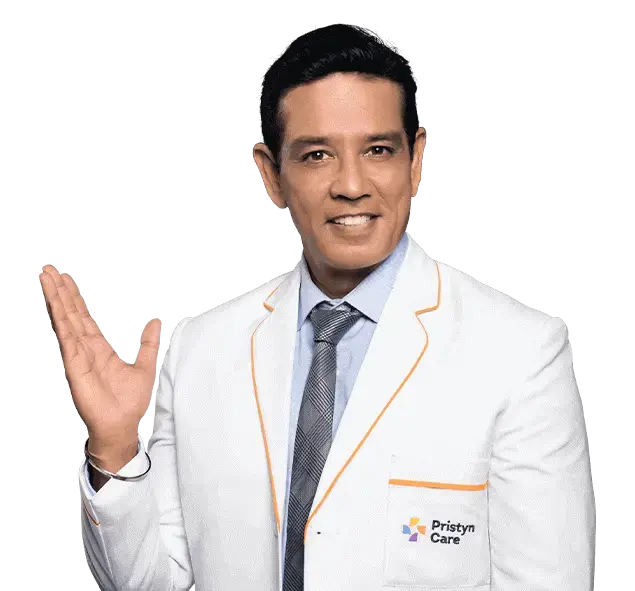

Available
Cataract Eye Surgery Specialist
Rahul Ashok Lambahate
“My experience at The Healing Touch Super Speciality Eye Care was truly excellent. From the moment I walked in, I was treated with utmost care and professionalism. The doctors were very knowledgeable and patiently explained every step of my treatment. The surgery went smoothly and my vision has significantly improved. Thank you, The Healing Touch.”
Date: 21-04-25
Vijay vanarche
“Good Services, nice staff.”
Date: 20-04-25

Available
Cataract Eye Surgery Specialist
L.B.Gupta
“Consultation, mics with latest machine is appreciated.we have an amazing experience with pristyncare.”
Date: 07-07-22

Available
Cataract Eye Surgery Specialist
Dharmendra Mahankud
“Nice”
Date: 28-01-25
Dharmendra Mahankud
“Super”
Date: 28-01-25

MS, DNB, FICO, MRCS, Fellow Paediatric Opth and StrabismusMobile
4.5/5
Available
Cataract Eye Surgery Specialist
Rukmini kadam
“I would like to sincerely appreciate Miss. Muskan Gulati. She helped us beyond her limits. Superb support from her.”
Date: 17-02-25
Bhartinath Sadbhaiyya
“I got my cataract surgery done successfully from here”
Date: 28-11-24


Available
Cataract Eye Surgery Specialist

Available
Cataract Eye Surgery Specialist

Available
Cataract Eye Surgery Specialist

Available
Cataract Eye Surgery Specialist

Available
Cataract Eye Surgery Specialist
Murali Shankar
“Thanks for the quick response. I am confident My treatment is Success .”
Date: 21-03-25

Available
Cataract Eye Surgery Specialist
Fatima Ansari
“Hair fall reduced, dandruff gone. Very humble to talk to Doctors and other staff.”
Date: 12-02-25

Available
Cataract Eye Surgery Specialist

Available
Cataract Eye Surgery Specialist
Rohini
“Excellent experience”
Date: 21-03-25

Available
Cataract Eye Surgery Specialist

Available
Cataract Eye Surgery Specialist
Suresh Prasad Singh
“Having a very good and helping attitude of the doctor giving great soothing effect to the patient.Very talented and profetional..”
Date: 09-01-25
Lata Jhunjhunwala
“Pristyn Care's SMILE LASIK treatment exceeded my expectations! I was nervous about getting my vision corrected, but the team's expertise put me at ease. The SMILE LASIK procedure was precise, and the recovery was smooth. I can't believe how clear and sharp my vision is now. Pristyn Care truly delivers on their promise of providing top-notch eye care!”
Date: 27-07-23
Top Cataract Surgeons in India
Who is a Cataract Surgeon?
A cataract surgeon holds a critical position in the medical world as an eye specialist. This role is a super specialisation within ophthalmology, a major branch of medicine dealing with eye health. Ophthalmologists are eye doctors, who specialise in diagnosing and treating eye conditions, including cataracts.
In India, cataract surgeons are renowned for their extensive education and training. After completing an initial medical degree, they move on to a residency in ophthalmology, followed by fellowship training focused on cataract and refractive surgery.
What Medical Conditions Do Cataract Surgeons Treat?
Cataract surgeons have expertise in several eye conditions beyond just cataracts. Some of the critical issues they deal with include:
- Refractive Errors: If you have myopia (nearsightedness), hyperopia (farsightedness), or astigmatism, these conditions can often be rectified during cataract surgery.
- Secondary Cataract (Posterior Capsule Opacification): This is a common post-cataract surgery complication in which the lens capsule becomes cloudy. It can be easily treated with a simple laser procedure.
- Complex Cataract Cases: Instances complicated by other eye conditions, such as glaucoma or macular degeneration, also fall under their purview.
- Lens Dislocation: If the lens of your eye moves from its normal position, an eye specialist needs to intervene.
When Should You Consult a Cataract Surgeon?
You may consult a cataract surgeon when you experience any of the following symptoms:
- Blurry Vision: If you notice any noticeable cloudiness or difficulty seeing clearly, it may indicate the presence of cataracts.
- Glare and Halos: If you have increased sensitivity to light or see halos around lights, especially at night, it could be a symptom of cataracts.
- Diminished Colour Vision: If colours appear faded or less vibrant than they once did, it’s worth seeking the advice of a cataract surgeon in India.
- Difficulty with Daily Activities: If you’re struggling with reading, driving, or recognising faces due to poor vision.
- Previous Eye Injury or Surgery: If you’ve had an eye injury or surgery that could impact your lens, you should consult a cataract doctor to assess any changes in your vision.
What Are the Diagnostic Techniques Used by Cataract Surgeons?
A cataract doctor utilises various diagnostic techniques to identify and gauge the severity of cataracts and other eye conditions. These techniques include:
- Comprehensive Eye Exam: This involves a complete assessment of the eye, including vision tests, to evaluate overall eye health and visual acuity.
- Slit-Lamp Examination: The surgeon employs a microscope with a bright light that provides a detailed view of the different structures in the front part of the eye, helping identify signs of clouding on the lens.
- Retinal Examination: The surgeon uses special drops to dilate the pupils, allowing them to examine the retina and optic nerve for potential issues.
- Ocular Coherence Tomography (OCT): This advanced imaging technique offers cross-sectional images of the retina, which help detect macular conditions that could impact surgery.
- Ultrasound or Optical Biometry: These measure the eye’s length and surface curvature to determine the appropriate power of the intraocular lens (IOL) to be implanted during cataract surgery.
- Pachymetry: This involves measuring the thickness of the cornea, which can influence surgery planning, especially when other conditions, such as glaucoma, are present.
What Are the Different Types of Procedures Conducted by a Cataract Surgeon?
A cataract surgeon in India performs various procedures to improve vision. These procedures include:
- Phacoemulsification: The most common type of cataract surgery involves using an ultrasound device to break up the cloudy lens, which is removed and replaced with an artificial IOL.
- Extracapsular Cataract Extraction (ECCE): Used when the cataract is very advanced and too dense for phacoemulsification. In this method, the lens is removed in one piece.
- Laser-Assisted Cataract Surgery: This technique uses femtosecond lasers to make precise incisions and soften the cataract for removal. It is often combined with traditional methods for enhanced accuracy.
- Secondary Cataract Laser Treatment: This is a quick, noninvasive laser procedure to treat posterior capsule opacification, a common post-cataract surgery complication.
- Microincision Cataract Surgery (MICS) – Microincision cataract surgery (MICS) is an approach to cataract surgery through an incision less than 1.8 mm with the purpose of reducing surgical invasiveness, and improving at the same time surgical outcomes.
- Femtosecond laser assisted cataract surgery (FLACS) -laser-assisted Femto Laser-Assisted Cataract Surgery, or FLACS, replaces many of the steps during cataract surgery that require a blade and soften the cataract, allowing for easier and smoother removal.
There are several compelling reasons to consult a top cataract doctor or eye specialist in India.
- Improved Vision: Cataract surgery can significantly enhance visual clarity, reducing reliance on glasses or contact lenses.
- Quality of Life: Cataract surgery can greatly improve your ability to perform daily activities such as reading, driving, and recognising faces by restoring vision.
- Early Detection of Other Eye Conditions: A thorough evaluation by an eye specialist can help identify other eye conditions, like glaucoma or macular degeneration, facilitating timely intervention.
- Advanced Surgical Techniques: Cataract surgeons are proficient in the latest surgical techniques and technologies, ensuring the safest and most effective treatment.
- Customised Vision Correction: With various IOL options, cataract surgery can be tailored to correct other vision issues, providing better overall vision outcomes.
Visiting a cataract surgeon in India is essential when experiencing vision issues related to cataracts or other vision-related problems. Early consultation and treatment can lead to better outcomes and an improved quality of life.
FAQs
- What should I expect during my consultation with a cataract surgeon in India?
During your initial consultation, the eye surgeon will examine your eyes, evaluate your medical history, discuss the symptoms, and explain the cataract surgery procedure. They might also conduct specific diagnostic tests to assess the severity of the cataract and determine the most suitable treatment plan.
- How often should I see my cataract surgeon after the surgery?
The frequency of follow-up visits post-surgery varies from patient to patient. Typically, you should expect to see your eye surgeon the day following the operation, a week later, and finally after about a month. However, your doctor may suggest more frequent visits if they observe any complications or issues.
- What is the cost of cataract surgery in India?
The cost of cataract surgery can vary significantly depending on the hospital, location, lens type used, and eye surgeon‘s fee. However, cataract surgery is generally more affordable in India than in many other countries without compromising on the quality of care.













